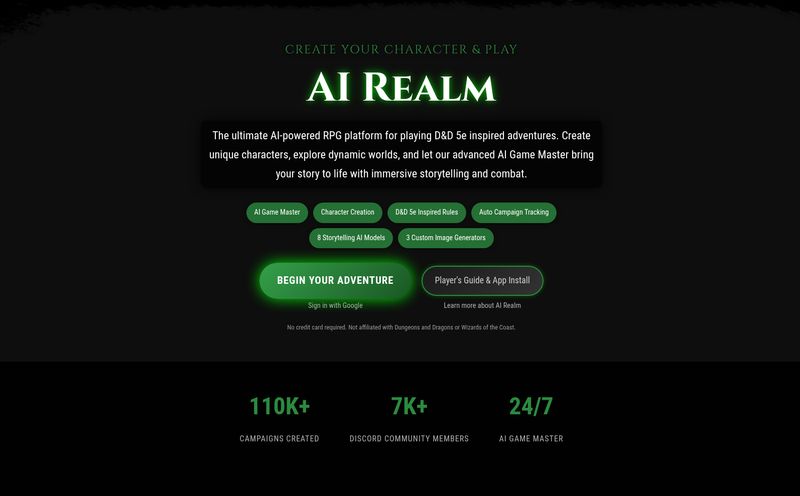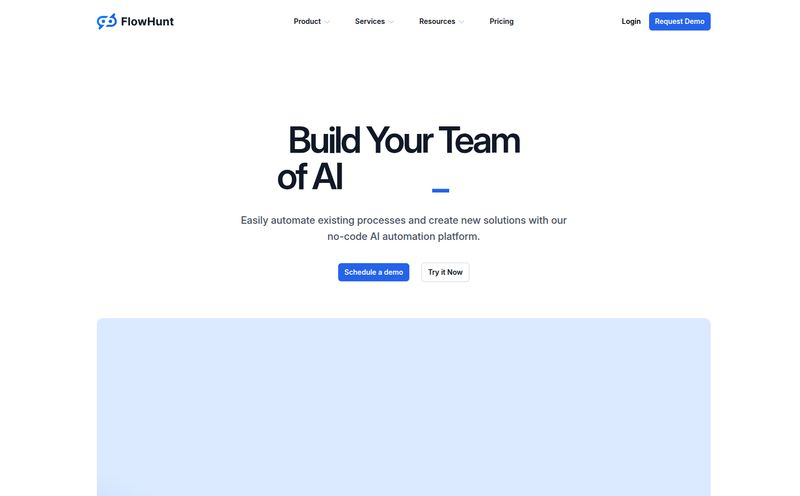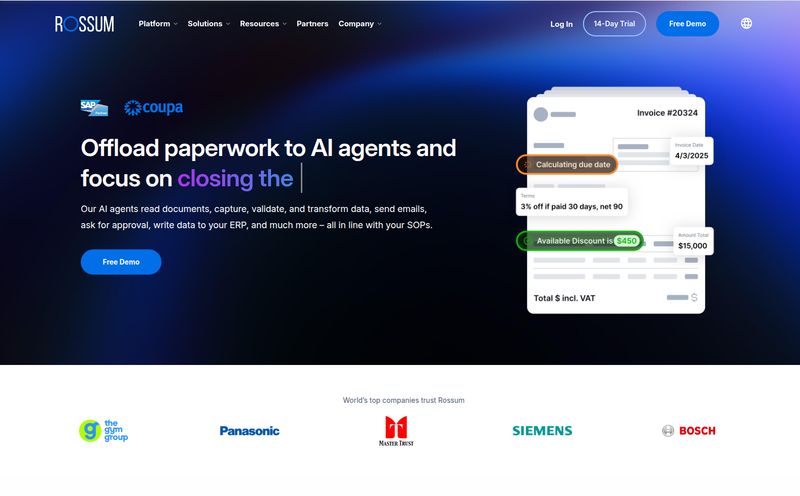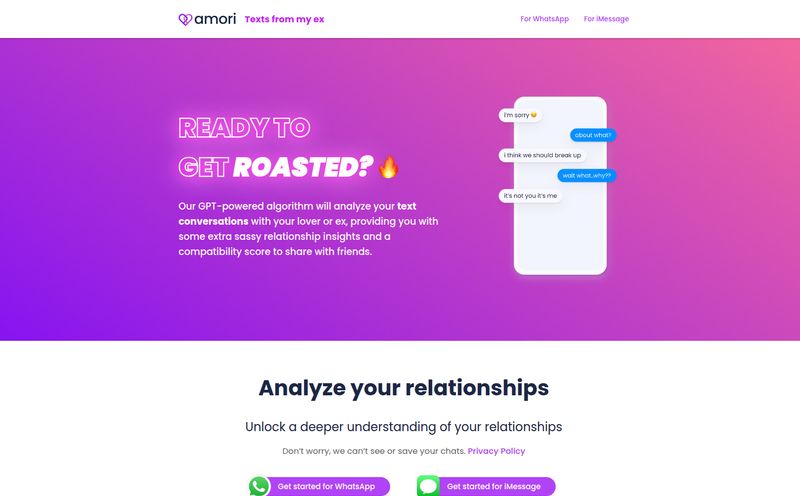We're all a little tired of signing up for things. Another day, another platform demanding your email, a creative password you'll forget in five minutes, and your firstborn child (okay, maybe not that last one... yet). In the world of AI, this friction is everywhere. You want to try the latest and greatest model, but first, you have to jump through hoops. It’s the digital equivalent of wanting a free sample at the store but having to fill out a three-page survey first.
I get it. As someone who lives and breathes this stuff, I’ve created more burner email accounts than I can count just to test new tools. So when I stumbled across a site called ChatGptDemo.net, my interest was definitely piqued. The promise? Access to a ChatGPT-4 demo, completely free, and—get this—no login required. No account, no email, no password. Just... the tool.
Is it too good to be true? A unicorn in a field of horses? I had to find out.
So, What Exactly is ChatGptDemo.net?
At its core, ChatGptDemo.net is exactly what it says on the tin. It's a web platform that gives you a direct line to a ChatGPT model that it claims is based on the GPT-4 architecture. Think of it as an open-door policy for one of the most powerful language models out there. You land on the page, you see a chat box, and you can start typing. Simple as that.
The site itself is pretty straightforward. There’s no fancy marketing fluff or confusing user interface. It’s built for one purpose: to let you chat with an AI. They even provide a neat little table with highlights about the original ChatGPT, crediting OpenAI and listing its launch date. It’s refreshingly transparent, in a way. They're not pretending they invented this; they're just providing a new doorway to it.
The Magic Words: “No Login Required”
This is the real showstopper, isn't it? In an age where our data is the currency, the ability to use a service anonymously feels like a superpower. It’s the difference between trying on a jacket in a store versus having to give the clerk your driver’s license to do so. The former is easy and commitment-free; the latter is just... weird.
For me, the appeal is massive:
- Privacy: You're not tying your queries, experiments, or silly questions to a personal account. It's a clean slate every time.
- Speed: The time it takes to go from 'I have an idea' to 'I'm testing my idea' is cut down to virtually zero. No sign-up forms, no email verification, nothing.
- Accessibility: It removes a huge barrier for people who are just curious. Maybe you're a student who needs to quickly draft an outline, a marketer brainstorming slogans, or a developer who just wants to test a single prompt without API keys. This is your easy button.
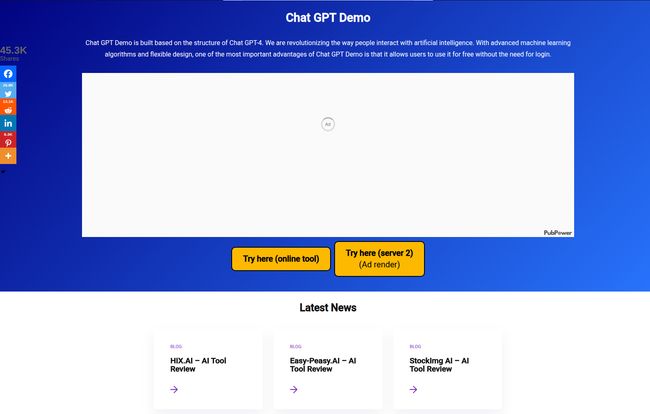
Visit ChatGptDemo
Honestly, this 'no login' approach feels like a throwback to the older, simpler internet. I love it. It’s a tool, not a lifestyle commitment.
How Does It Stack Up Against Official ChatGPT?
Okay, let's address the elephant in the room. This is a demo. A free, unauthorized wrapper. So, is it the same as shelling out $20/month for a ChatGPT Plus subscription from OpenAI? Of course not. And it would be silly to expect it to be. Let’s break down the good, the bad, and the practical.
The Upside of Free and Easy
The main advantage is obvious: it costs nothing. You get to play in the GPT-4 sandbox without opening your wallet. For quick tasks—generating some email copy, explaining a complex topic simply, writing a bit of code—it’s fantastic. The multilingual support is also a huge plus, making it accessible to a global audience right off the bat. During my tests, the responses were coherent, creative, and felt very much like the GPT-4 I'm used to. It even handled a few tricky coding questions I threw at it with surprising competence.
Potential Trade-Offs and Limitations
Now for the reality check. Free services have to have some limitations. Based on my experience with similar platforms and the site's own subtle hints, you might run into a few things. Response times can sometimes be a bit slower than the premium, paid version. This makes sense; server priority is probably given to paying customers on the official platform. You're getting access via a shared, public lane, not the express toll route.
Additionally, while it's based on GPT-4 architecture, it might not be the absolute latest, most cutting-edge version. OpenAI is constantly tweaking their models. You also won't get premium features like DALL-E 3 image generation, Advanced Data Analysis, or the ability to use custom GPTs. And forget about conversation history. Once you close that tab, your chat is gone forever—which, depending on your privacy concerns, could actually be a feature, not a bug.
So, Who Is ChatGptDemo Really For?
This tool isn't for everyone, and that's okay. If you're a power user who needs guaranteed uptime, conversation history, and the full suite of integrated tools, you should stick with an official OpenAI subscription. No question.
But if you fall into one of these categories, ChatGptDemo might just become your new favorite bookmark:
- The Curious Explorer: You've heard all the hype about GPT-4 but haven't wanted to commit to creating an account.
- The Occasional User: You need AI help once in a blue moon for a specific task and don't need a monthly subscription.
- The Privacy-Conscious Individual: You want to ask questions without linking them to your personal identity.
- Students and Educators: Perfect for quick research, homework help, or lesson planning without school-wide sign-ups.
- Content Creators & Marketers: An amazing tool for quick-fire brainstorming, headline generation, or social media post ideas.
I see it as the perfect 'first touch' for anyone wanting to see what the fuss is about. It's also a great secondary tool for pros who just need a quick, clean instance to test a generic prompt.
FAQs About ChatGptDemo
Is ChatGptDemo.net safe to use?
From a technical standpoint, the site seems safe. It uses HTTPS, and since you're not providing any personal information, the risk is incredibly low. I'd still advise against entering any sensitive personal or proprietary data, which is just good practice for any third-party AI tool, free or paid.
Is it really free? Are there any hidden costs?
Yes, it's genuinely free to use. There are no pricing pages or requests for payment. The platform is likely supported by the ads you see on the page, a common model for free-to-use web tools.
How is the response quality compared to the official GPT-4?
In my tests, the quality was very high and felt indistinguishable from early versions of GPT-4. It excels at writing, coding, and reasoning. However, it may not have the absolute latest knowledge cutoff or features of the current, paid ChatGPT Plus model.
Can it remember our previous conversations?
No, and that's a key part of its 'no login' design. Each session is stateless. Once you refresh or close the page, the conversation is gone. For continuous projects, this is a downside. For privacy and one-off tasks, it's a major plus.
How many questions can I ask?
The site doesn't state an explicit limit. However, most free services have some form of rate limiting to prevent abuse. If you start firing off hundreds of requests in a short period, you might get temporarily throttled. For normal use, you should be perfectly fine.
My Final Verdict
I'm genuinely impressed with ChatGptDemo.net. It's a breath of fresh air. It’s a simple, effective, and incredibly useful tool that respects the user's time and privacy. It democratizes access to powerful AI by removing the most common barriers: cost and registration.
No, it won't replace a professional subscription for heavy-duty work. It's not supposed to. It’s the trusty pocket knife of AI tools—quick, easy to access, and surprisingly capable when you need it. For anyone who's been on the fence about AI or just needs a quick, no-strings-attached brainstorming partner, I can't think of a better place to start. Give it a try; what have you got to lose? After all, you don't even have to sign up.
Reference and Sources
- Tool Website: ChatGptDemo.net (Note: This is the tool under review)
- Official AI Developer: OpenAI - The creators of the underlying GPT technology.
